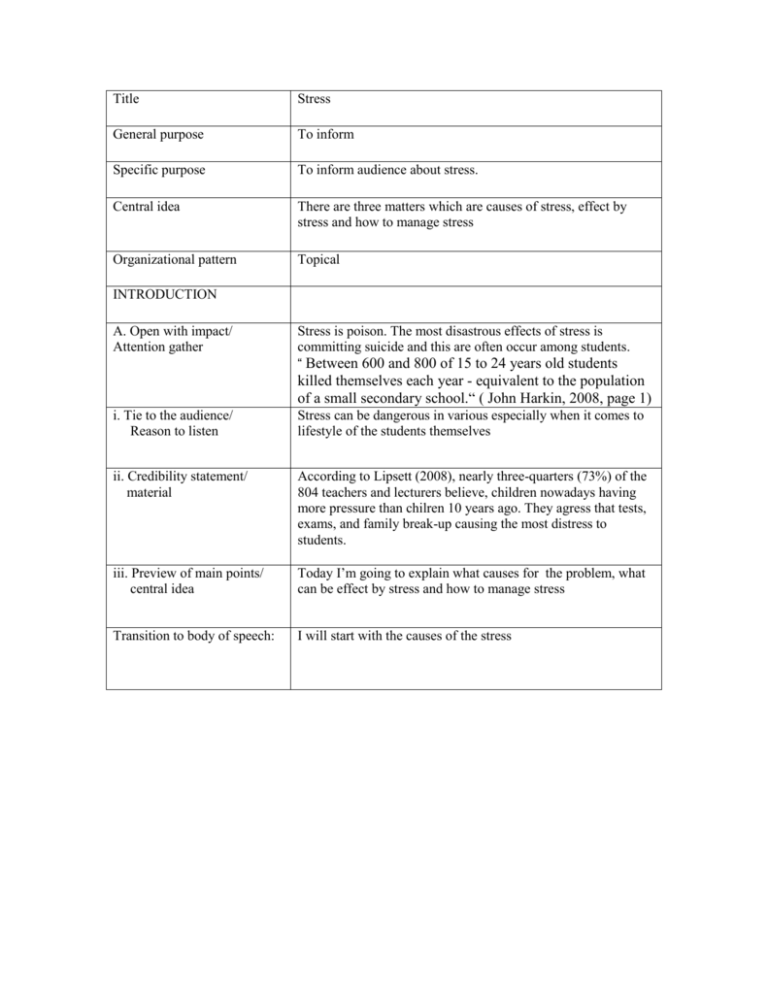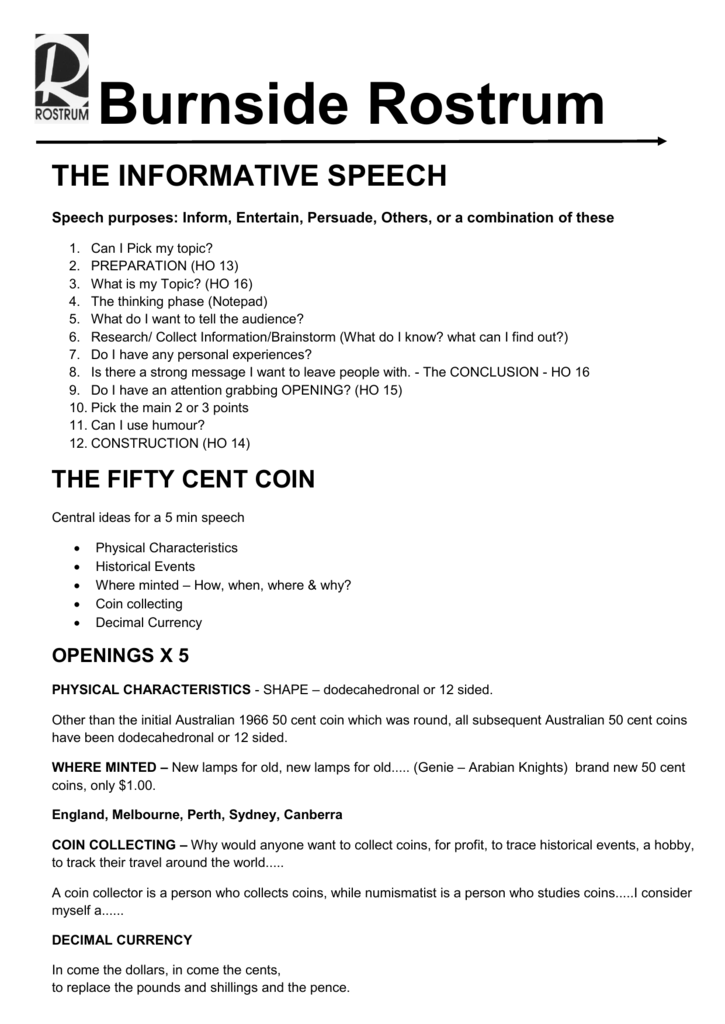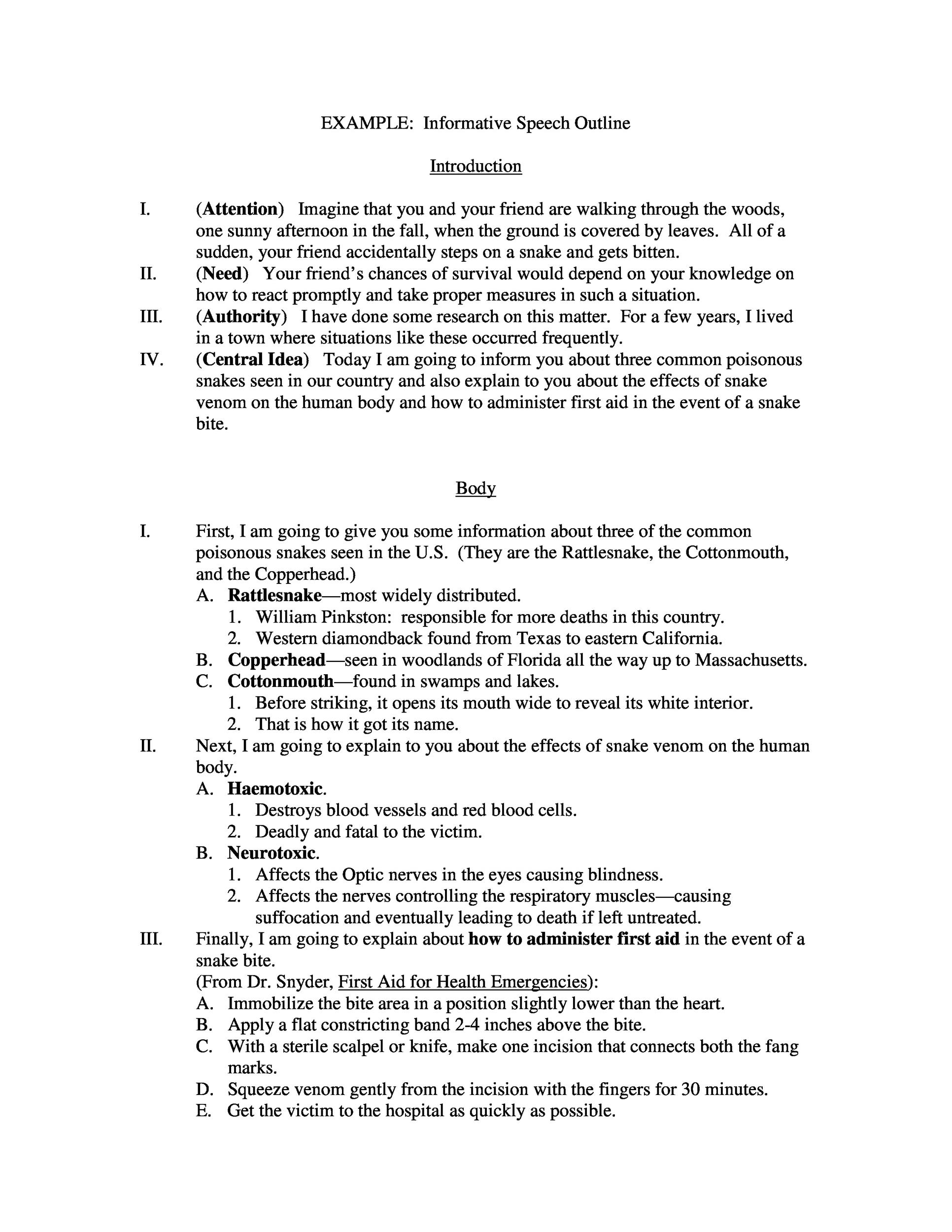

Tarot cards, star-nosed moles, Enterprise 1701-D Table 11.1 Sample Informative Speech Topics by Category Category An extended speech at the formal level may include subject matter from several of these categories, while a speech at the vocational level may convey detailed information about a process, concept, or issue relevant to a specific career.

Whether at the formal, vocational, or impromptu level, informative speeches can emerge from a range of categories, which include objects, people, events, processes, concepts, and issues. When we give a freshman directions to a campus building, summarize the latest episode of American Idol for our friend who missed it, or explain a local custom to an international student, we are engaging in impromptu informative speaking. Last, we all convey information daily in our regular interactions. In addition, human resources professionals give presentations about changes in policy and provide training for new employees, technicians in factories convey machine specifications and safety procedures, and servers describe how a dish is prepared in their restaurant.

Teachers like me spend many hours lecturing, which is a common form of informative speaking. Many more people deliver informative speeches at the vocational level, as part of their careers. Only people who have accomplished or achieved much are asked to serve as keynote speakers, and they usually speak about these experiences.
INFORMATIVE SPEECH CENTRAL IDEA EXAMPLE PROFESSIONAL
Being invited to speak to a group during a professional meeting, a civic gathering, or a celebration gala brings with it high expectations. Formal informative speeches occur when an audience has assembled specifically to hear what you have to say. Informative speaking usually happens at one of three levels: formal, vocational, and impromptu (Verderber, 1991). Your topic choices may be influenced by the level at which you are speaking. Finally, much of the information that has built up over time has become commonly accepted therefore much of the history or background information isn’t disputed and can now be shared in an informative rather than argumentative way.īeing a successful informative speaker starts with choosing a topic that can engage and educate the audience. Now one must learn a history or backstory before actually engaging with a subject or trade. The increasing complexity of fields of knowledge and professions also increased the need for informative speaking. Now society generally believes that information should be shared and made available to all.

Technical information used to be jealously protected by individuals, families, or guilds. So what facilitated the change from argumentative and demonstrative teaching to verbal and informative teaching? One reason for this change was the democratization of information. While most instruction is now verbal, for most of modern history, people learned by doing rather than listening, as apprenticeships were much more common than classroom-based instruction. Monash University – Surgery Workshop 2012 – CC BY-NC 2.0.
INFORMATIVE SPEECH CENTRAL IDEA EXAMPLE HOW TO
Since your exposure to informative speaking is inevitable, why not learn how to be a better producer and consumer of informative messages? College alumni have reported that out of many different speech skills, informative speaking is most important (Verderber, 1991). Some organizations, like consulting firms, and career fields, like training and development, are solely aimed at conveying information. That means you are more likely to give and listen to informative speeches in a variety of contexts. Reports, lectures, training seminars, and demonstrations are all examples of informative speaking. Although informative speaking may not be the most exciting form of public speaking, it is the most common. Many people would rather go see an impassioned political speech or a comedic monologue than a lecture. Employ strategies for effective informative speaking, including avoiding persuasion, avoiding information overload, and engaging the audience.Explain the different methods of informing.Identify strategies for researching and supporting informative speeches.Identify common topic categories for informative speeches.


 0 kommentar(er)
0 kommentar(er)
